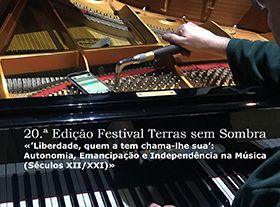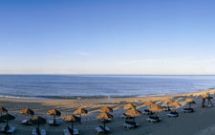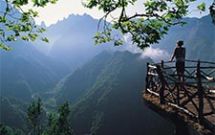Castelo de Beja
Castelo de Beja
Monuments
Beja Castle, while resting on Roman fortifications, was rebuilt by king Dinis in 1310. This is the structure, part of the king´s reinforcement of national defences, that can now be seen.
During the 16th century, certain improvements were carried out resulting in the Manueline features that can be seen, for example, in the twinned tower windows that look out onto the Praça de Armas, the entrance to the castle.
The most significant aspect of the castle is the imposing Torre de Menagem (donjon), now the symbol of the city of Beja, with its battlements and narrow walkway running around the tower. Inside, there are three floors featuring ogival doors and worked vaults. The upper floor is reached by a 183º spiral staircase. At the top, there is one of the best views over the city and the surrounding region.
Image: Courtesy of Região de Turismo da Planície Dourada. Author: David Francisco
During the 16th century, certain improvements were carried out resulting in the Manueline features that can be seen, for example, in the twinned tower windows that look out onto the Praça de Armas, the entrance to the castle.
The most significant aspect of the castle is the imposing Torre de Menagem (donjon), now the symbol of the city of Beja, with its battlements and narrow walkway running around the tower. Inside, there are three floors featuring ogival doors and worked vaults. The upper floor is reached by a 183º spiral staircase. At the top, there is one of the best views over the city and the surrounding region.
Image: Courtesy of Região de Turismo da Planície Dourada. Author: David Francisco




 Explore
Explore 
 Remember and Share
Remember and Share 


